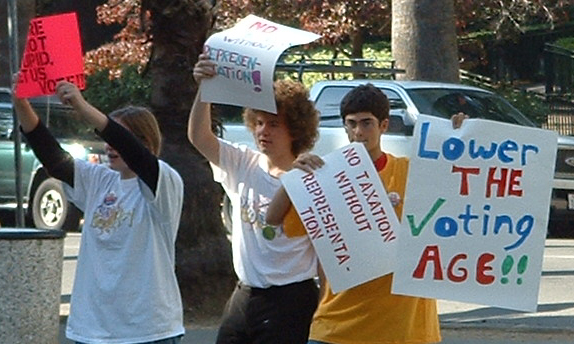Currently, you have to be at least 18 years of age to cast a vote in California. This allows 17-year-olds to vote in primary elections (currently, in March), as long as they turn 18 by that November.
If you like the way Prop 17 for the way it expands the franchise, you might like Prop 18 as well. However, you should know that if Prop 17 passes, California, far from being a leader, would be following in the footsteps of 23 other states.
Worldwide, 18 appears to be the global standard for the minimum voting age. Countries that do allow voting at a lower age simply grant voting rights to 16- or 17-year-olds, without special rules about primary elections. In fact, primary elections are largely an artifact of America’s two-party system, and rare in the multi-party systems found in most democracies.
There are good arguments for extending the right to vote to 16- and 17-year-olds. But if California means to lead the world in this, something like San Francisco’s Measure G, which simply lowers the voting age to 16, is a much clearer and cleaner way to go.
Also, if we’re serious about expanding voting rights, there’s a much larger demographic of Californians that’s currently disenfranchised: non-U.S. citizens. Because of a backlog of applications, it can take years for a new arrival in California to gain legal U.S. citizenship. And that’s if they’re allowed at all; more than 2 million Californians are undocumented despite typically having been U.S. residents for over a decade. California absolutely has the right to extend voting rights in state and local elections to any resident, not just U.S. citizens. Californians would do well to give up wishful thinking that the United States’ long-broken immigration system will be fixed, and instead think about what works best for democracy in California.
NEXT: Prop 19: YES on reforming California’s residential property tax system

